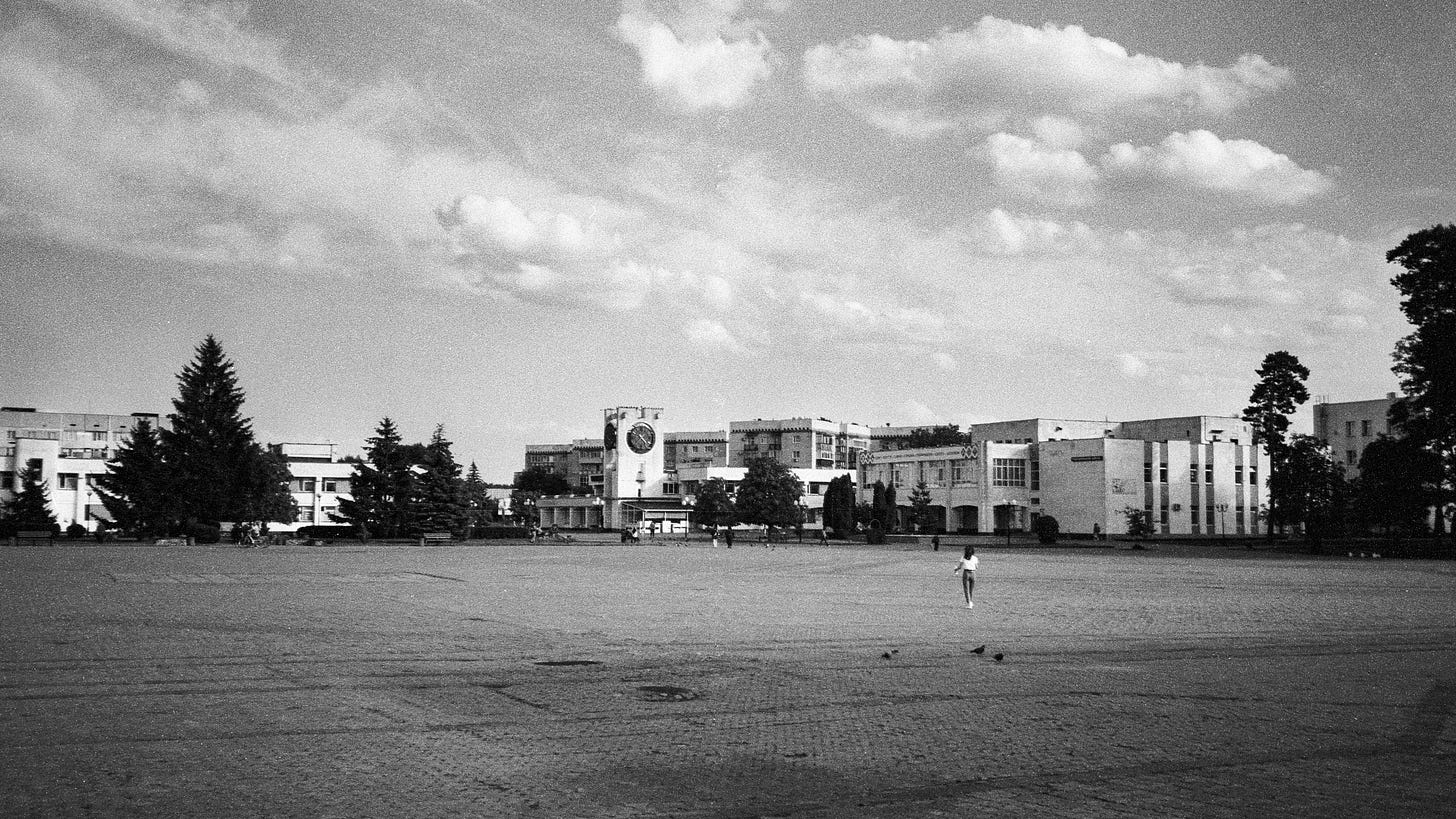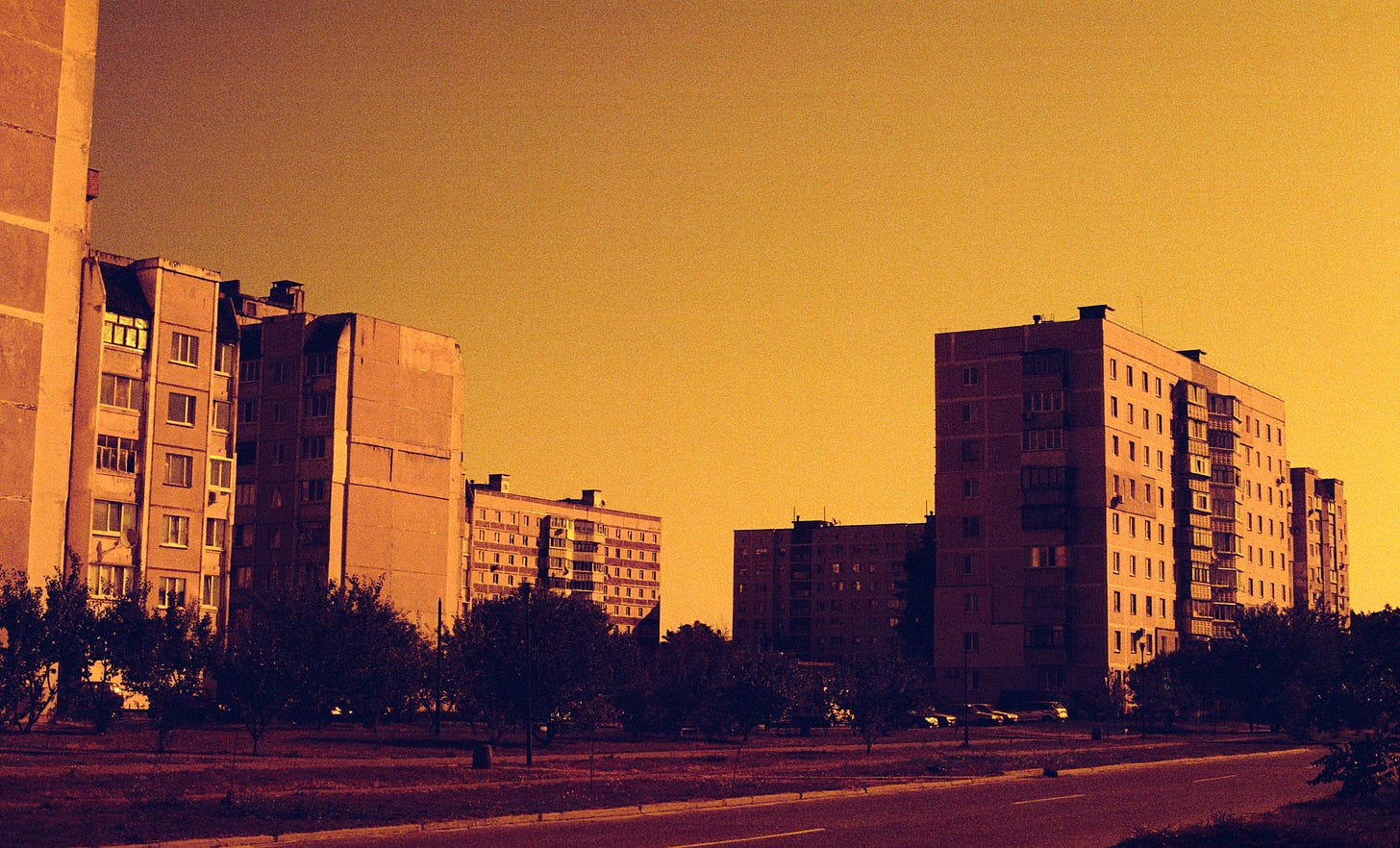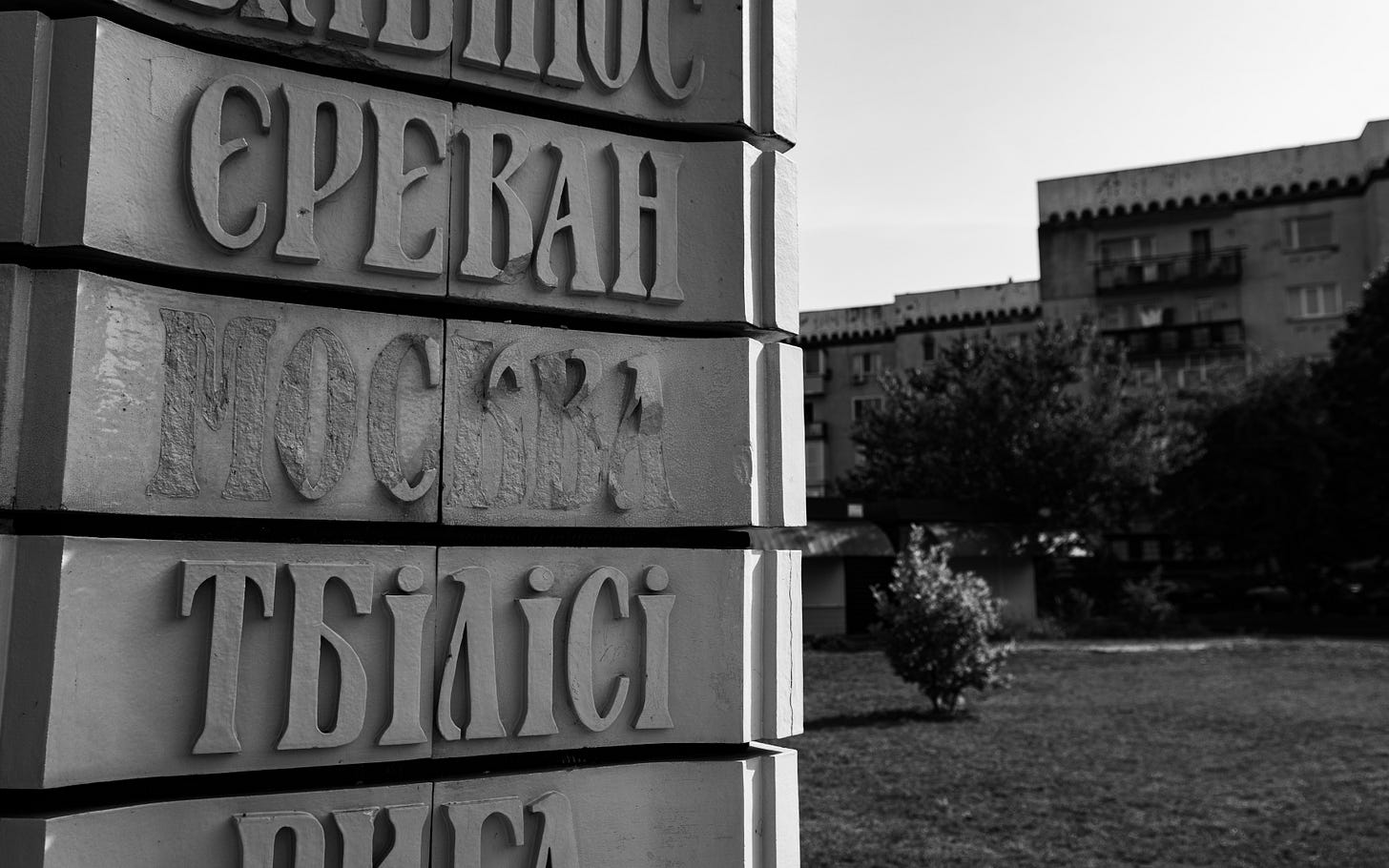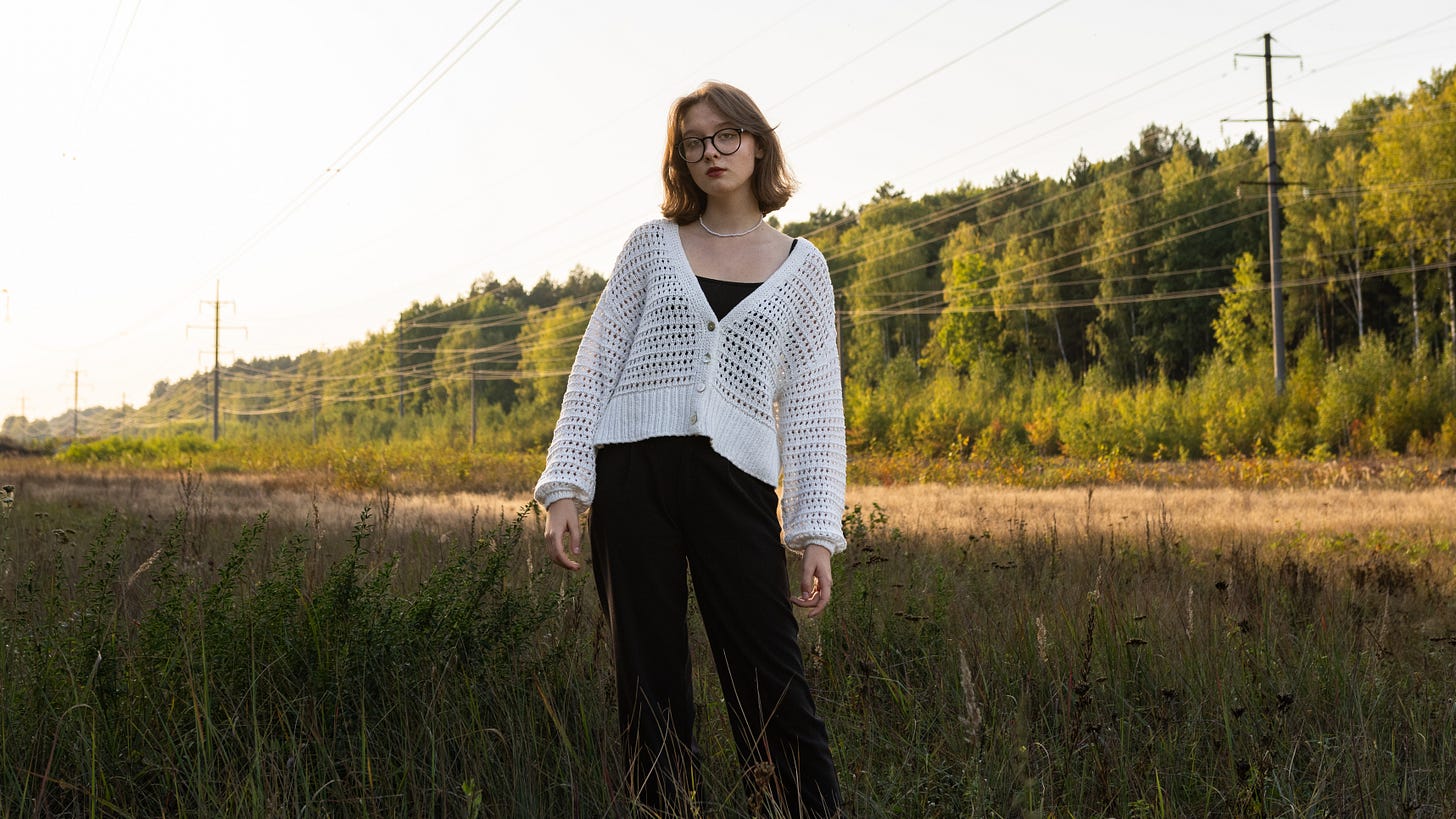A young person's account of the war in Ukraine: My Interview with Victoria
Young people facing war are often spoken about but rarely get a chance to share their own voice. I interview Victoria, someone who's spent their formative years in the shadow of war.
Introduction: The girl from Slavutych.
Slavutych is a small town located about two hours drive north of Kyiv and roughly seven miles from Belarus. You would be forgiven for not knowing about this town, but you absolutely know about its reason for existing: Chornobyl. Being the last planned Soviet city, Slavutych was constructed to house the now homeless residents of Pripyat and the surrounding area. It was also home to those who would still work at the Chornobyl nuclear power plants remaining three power cores. This lasted and was still in operation until the year 2000, when the final core was taken offline. Because of its unique founding and demographics pre-2022, sentiments in Slavutych have been described to me as something distinctly Soviet.
However, on February 24, 2022, the Russian Federation would mount a full-scale invasion of Ukraine, opening a new front through the southern border of Belarus. While being under occupation, thousands of people would make themselves known, openly protesting the invading army and after the early weeks of the war, Slavutych would be liberated, but the war would leave its marks on the world's last Atomgrad.
That brings us to Victoria, a young woman I met during my time in Slavutych. When we sat down to talk, she was very passionate in telling her story of occupation, growing up in war, and how her and her friends lives have been forever changed due to the full-scale invasion. While unable to conduct a video interview in person, she agreed to a written one online. Please enjoy.
Interview:
Devin: Thank you for sitting down and taking the time to talk with me. Would you mind introducing yourself?
Victoria: Thank you for the opportunity that you gave me, I really appreciate that. So my name is Victoria, I’m 16 and I’m a student of Slavutych Lyceum.
D: Slavutych is a fairly small town. What was life here like for you as a young person before the full-scale invasion?
V: Slavutych is a small town with big opportunities, not gonna lie. Before the full-scale invasion, I was a member of the Youth Council. I worked with different people, organizations, and created a lot of projects. So my life as a student and mentor was full of activities. I even planned a lecture for teenagers that was to take place on February 24, but we didn’t know what was going to happen.
D: The thoughts and opinions of teenagers often go unheard when we talk about war and how people are affected. How has this affected you and your friends?
V: Most of the teenagers, including me and my friends, were supposed to become adults too early and quickly at the beginning of the full-scale war. We were supposed to be strong and hold our emotions well, not only for ourselves but also for our parents and grandparents. Our opinions about the situation in Ukraine are mostly unheard; that’s true. But it doesn’t mean that we are going to stay silent, because we are the future of this country and if we need to fight for our freedom and be stronger than ever - nothing could stop us.
I also had to stay strong and calm. It is simply impossible to explain the feeling I had because there are not enough words. But anyway, I stayed positive and didn’t cry at all. I had to stay strong for my mother when my father went to the frontline (and for him too). I had to stay calm for my grandparents too, because I didn’t want to be a burden to all of them.
My friends also had a hard time trying to stay in shape, not only physically but mentally too. I have a friend whose father has been in captivity for a year now. He’s a defender of the Chornobyl nuclear power plant and we don’t know anything about him. We don’t know where he is; is he alive? How is he? Especially when he’ll return home, Literally nothing. And he’s not the only one there, that’s the scariest part. They don’t get enough food and water, some of them are injured and can’t take care of themselves, but no one cares there. I have a lot of acquaintances whose fathers are there and that’s horrible.
D: You mention the defenders of the Chornobyl Nuclear Power Plant. Most of the world might be unaware of the fact that Slavutych is still heavily tied to the infamous power plant. Can you speak more about the Defenders of Chornobyl?
V: You are right, many people do not know about the defenders of the Chornobyl nuclear power plant or about civilians that also came under Russian occupation. But there is a lot of information that everyone really should know. 70 soldiers finally returned home after a year of imprisonment, but today more than 100 people are still in captivity. Their wives are fighting to bring them home, but most of their attempts are unsuccessful because it’s a very hard and long-lasting process.
Representatives of the International Committee of the Red Cross are not allowed to visit the prisoners, so we know about the conditions of detention only from the words of the prisoners who have already been released.
Before the full-scale invasion, the National Guard of Ukraine was defending the Chornobyl nuclear power plant, and on February 24, they were all still there. Unfortunately, the Russians occupied the area, and the soldiers were surrounded. The important part is that they couldn’t attack them to protect that territory because the Russians could start to fight back, and there was a risk for the whole of Europe that radioactive substances from the power plant could lead to terrible consequences due to damage to any mechanisms and so on. Therefore, combat operations on the territory of the power plant are prohibited. So remember that they sacrificed themselves to avoid a new man-made disaster.
Link to the “Free Chornobyl defenders Instagram: instagram.com/freechornobyldefenders
The Russians were doing terrible things on the power plant, even dressing up as workers and telling the TV that everything was fine and that their soldiers were actually "saving us." But we were informed about that. When Slavutych was left without electricity, the ChNPP (Chornobyl Nuclear Power Plant) was also threatened. There was no telling when the power would be restored, and the generators at the plant cannot run forever. But after the longest nine days of our lives, the Russians finally left, but they took the National Guard soldiers with them. And since then, they have been held captive.
This is only a small part of the full story. The children just want their parents to finally come home, as well as their wives. We remember them, we are proud of them, and we will fight until the last prisoner returns to his family.
Link to the full story Provided by Victoria: https://mipl.org.ua/en/how-russia-seized-the-chnpp-the-reconstruction-of-events-and-names-of-responsible/
As of this convo 5 Defenders of Chornobyl have been freed. For Updates you can follow the Free Chornobly Defenders Instagram page here: https://www.instagram.com/freechornobyldefenders/?hl=en
D: Switching gears back, it seems that the younger generation tends to be fairly patriotic when it comes to their country now. Did you see much pride in being Ukrainian before 2022?
V: To be honest, no, I didn’t. And I’m talking about myself too. I wasn’t such a patriot before the full-scale invasion, just like everyone else. I knew about the war in 2014 and the Maidan, but no one around me talked about it. I didn't read the news, I didn't know much history. We used to read Russian literature and learned Russian at school. It's terrible, but it's true. I didn't really like it, I just didn't care. After the full-scale invasion, a lot of people started to speak Ukrainian, including me and my friends. Before 2022 everyone used to speak Russian and it wasn’t a big deal. But now it’s a big problem because the reason was a massive russification of the Ukrainian people.
D: When we spoke in person, you told me a lot about that first day of the full-scale invasion. Would you mind recounting what you had said for me today?
V: The first day was really crazy. I woke up at 6 AM in the morning because of explosions outside. At first I thought that I was going mad and then I was like “What? Right now? Seriously?”. I texted all of my friends and they also were confused.
I was nervous a little bit, but started to get ready for school anyway. Then I received a message from the principal that we should stay home and study online. And what do you think? Our teachers really started teaching us and even gave us homework online. We really thought it would not last longer than two or three days. We hoped that everything would fall into place.
When I saw my mom she was really upset and I realized that dad wasn’t at home. I heard her crying while talking to my grandma on the phone. But I still tried to stay calm, positive, and listen to all the news carefully.
D: How did life change during those first few days of the invasion?
V: I remember the first siren, when I was carrying a lot of bags to the shelter and laughing about it. I remember six days without electricity and an eternity without internet connection. I remember the days of the humanitarian catastrophe when food wasn’t brought to the town because the town was surrounded, when we tried to make bread from corn and potato flour (that was the tastiest bread ever). We studied, supported each other, and tried not to lose our minds. Life has changed. Times have changed. We were all born again the day when the war began.
D: Slavutych, unfortunately, came under occupation for nine days. It was a rare case as the people came out to protest the Russian occupation. What were those nine days like?
V: It was stressful and scary. It was that feeling when you don't know if you're going to live to see the next day. But fear helped us to get together and start doing something. I saw the protest when I was running to my grandparents' house, which was in the city center. There was heavy fog and many machine gun bursts were heard. The day before that, I was going out with my friend. Then we heard a siren that warned us about the artillery attack and we immediately went to the nearest shelter.
When the Russians were in town, I was already ready for any situation that could possibly be. I wasn’t panicking at all, I had to protect my family and myself too. I just wanted it to be over. I wanted to finally go back to school, I hadn't seen my friends for almost 2 months.
When the Russians left Slavutych, we were afraid at first that they might come back and attack us. But, thank God, this didn’t happen.
D: A lot has happened over the last two years; I obviously don’t need to tell you that. How has your view of the world changed over these formative years?
V: The world has finally seen the true face of Russia and how scary it is to be a neighbor of terrorists. I felt the support and care of many countries. I felt that it’s time to show us to the entire world, because they shouldn’t associate us with the war only. Look at our culture, history, and people! The world has seen what is real terrorism and genocide in this century, unfortunately with our own example. But we need to prevent this in the future, we don’t need our kids to fight with it again. So my view of the world has changed considerably. I realized that it’s very cruel, unpredictable, and everything needs to be changed because we don’t know what is gonna happen tomorrow, and I know very well that politics is always placed above all of the social norms.
D: What are your hopes for the future of your home and your country, and do you believe it is possible?
V: Many countries do not really want us to win. This is not a secret. If you study the history of Ukraine, you will realize that we are always fighting for our freedom.
We are fighting just to exist in this world and we will do that until we get our way, I promise. In spite of everything, I believe that my country will win. Although we will never return to our normal lives, I hope that in the end everything will be fine, and this is only possible when other countries stop being afraid of Russia, because we are not.
D: Finally, is there anything you would like our readers to know? Anything I’ve not asked about or something you’ve not seen the world take notice of.
V: Dear reader, I know that life can be difficult and rough nowadays, but you don’t actually know what day may be your last. We don’t know what is gonna happen in the future, we don’t know when our lives can be in the balance. Just don’t be afraid to live and enjoy every moment of your life, because it’s really important. Love yourself and everything that surrounds you, live every day like it’s the best day of your life. Because, after all, life goes on, don’t forget that!










